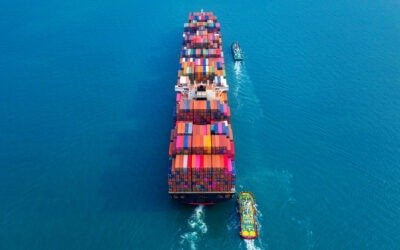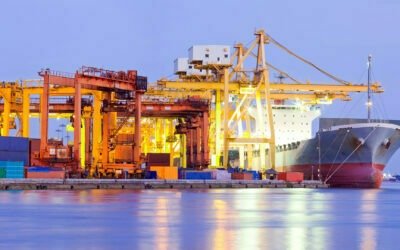Around 90,000 marine vessels carry out over 90% of the global trade through oceans. Ships, like all fossil fuel powered modes of transportation, emit carbon dioxide and, therefore, contribute considerably towards global emissions and climate change. More than 3% of the carbon dioxide emissions worldwide are caused by the shipping industry, which continues to grow rapidly to date [1]. If the global shipping industry were considered a country, it would be the sixth largest contributor of greenhouse gas emissions. Only the U.S., China, Russia, India, and Japan emit more CO2 than the entire global maritime fleet [1].




Shore to Ship Power Systems Service Overview
The research presented in this article is from PTR's Shore to Ship Power Systems market research. For information about this service please submit a request shown below.
Europe: +49-89-12250950
Americas: +1 408-604-0522
Japan: +81-80-7808-1378
GCC/Rest of APAC: +971-58-1602441
More About our: Shore to Ship Power Systems Market Research
Recent Insights
OPS Installed Base in NAM & Europe
OPS installation is on the rise globally as countries prioritize their environmental objectives and seek to minimize the ecological impact of maritime activities. This progressive technology is reshaping port operations worldwide, with a growing number of nations...
Bridging the Gap Between OPS Installations and Vessel Traffic
• The environmental impact of maritime traffic is examined, focusing on the potential of shore-to-ship power systems to drive sustainability in the industry. • The disparity is unveiled by analyzing vessel traffic data and onshore power supply systems, highlighting...
Overview of the OPS Market in NAM & Europe
In response to the pressing need to combat maritime emissions and meet environmental targets, an increasing number of countries are embracing shore-to-ship power research solutions. This technology enables ships to connect to land-based power sources while docked,...
Carbon Capture, Storage and Utilization: Transforming Emissions into Solutions
• CCUS technologies involve capturing CO2 emissions from industrial processes, utilizing it in various ways, and storing it permanently underground.• CCUS provides a cost-effective way to reduce GHG emissions from industrial processes, thereby contributing to the...
Middle East Energy (MEE) Conference Impressions 2023
The Middle East Energy (MEE) conference & trade fair in Dubai, which took place from 7th to 9th March, was a prime meeting place for professionals from all over the energy and power grid industry. The conference provided a platform for key equipment manufacturers...
Decarbonizing the Baltic Sea: The Push for Shore Power Infrastructure in Ports
• Baltic Sea ports are showing strong affinity towards the deployment of shore power infrastructure.• Currently, more than 90 shore power facilities are available at the major ports of the Baltic Sea region.• Ports as well as cruise line owners are pushing to curtail...
Standardizing Vessel Charging: Overcoming the Barrier to Electrification in the Maritime Industry
• The vessel charging technology adoption is slow across the globe mainly due to lack of global vessel charging standards which is expected to impact the electrification of maritime sector if not taken care of.• The reason for the lack of global charging standards is...







